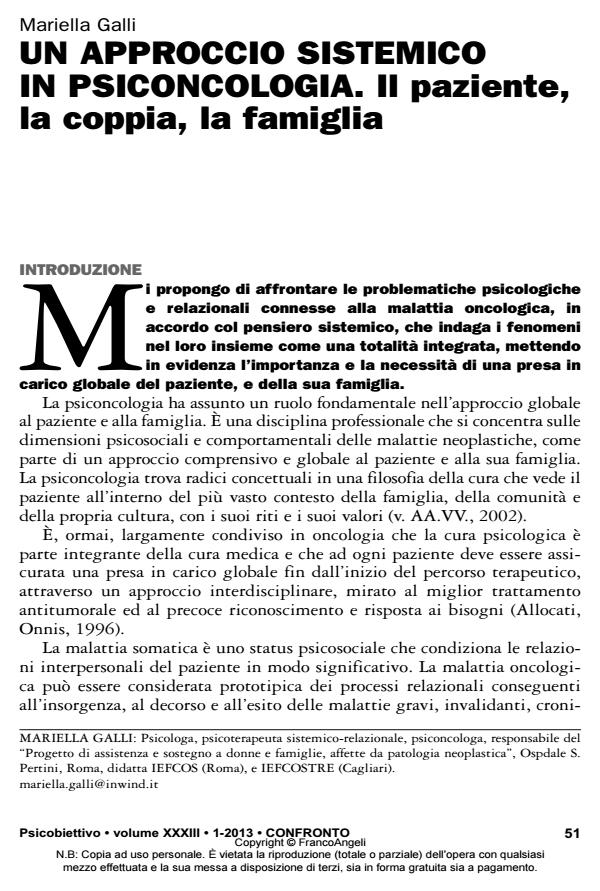A systemic approach in psychoncology. the patient, the couple, the family
Journal title PSICOBIETTIVO
Author/s Mariella Galli
Publishing Year 2013 Issue 2013/1
Language Italian Pages 22 P. 51-72 File size 160 KB
DOI 10.3280/PSOB2013-001005
DOI is like a bar code for intellectual property: to have more infomation
click here
Below, you can see the article first page
If you want to buy this article in PDF format, you can do it, following the instructions to buy download credits

FrancoAngeli is member of Publishers International Linking Association, Inc (PILA), a not-for-profit association which run the CrossRef service enabling links to and from online scholarly content.
The author, in dealing with psychological and relational problems related to cancer disease, in agreement with the systemic thinking, highlights, the importance and the need of a global care for the patient, and his family. The paper describes the relational processes in the family due to the onset, the course and the outcome of cancer. The aim of the article is to describe how the family system copse when it is involved in a painful disease situation such as cancer. It describes also the processes of adaptation and transformation in the family’s relationship in response to the onset of the disease. The knowledge of these processes suggests that the scheduling of tailored psychological support programs for partners and families. These interventions are aimed at improving active collaboration between family, patient and medical team as well as supporting the family during the crucial phases of the disease and of the cancer treatments.
Keywords: Family; Psychoncology; Coping; Cancer; Communication; Supportive Care; Psychotherapy
Mariella Galli, Un approccio sistemico in psiconcologia. Il paziente, la coppia, la famiglia in "PSICOBIETTIVO" 1/2013, pp 51-72, DOI: 10.3280/PSOB2013-001005